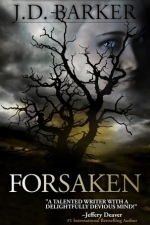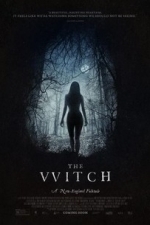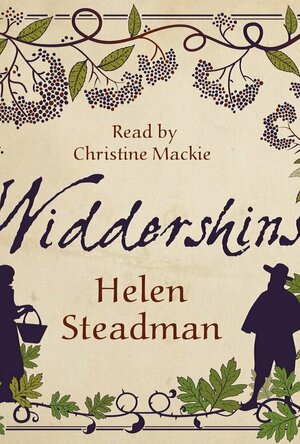
Widdershins (Widdershins #1)
Helen Steadman and Christine Mackie
Book
The new audio book of Widdershins is narrated brilliantly by talented actor, Christine Mackie, from...
Historical Fiction Witches
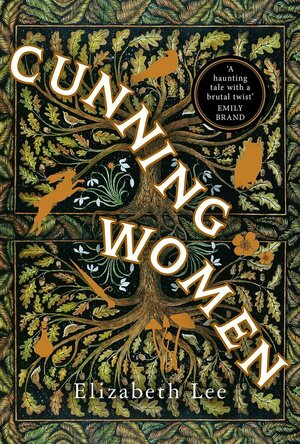
Cunning Women
Book
When it is no longer safe to be a witch, they call themselves cunning. 1620s Lancashire. Away...
Historical fiction Witches Witchcraft Gothic 17th century England
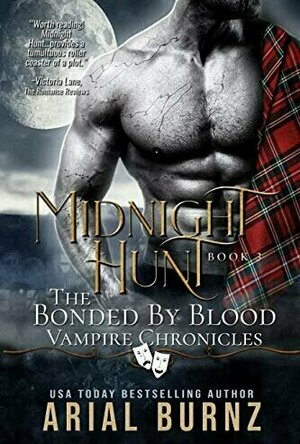
Midnight Hunt (Bonded By Blood Vampire Chronicles #3)
Book
Germany - 1636 Driven by the desire to have the true love she's experienced in her dreams, MONIKA...
Historical Paranormal Romance
Erika Kehlet (21 KP) rated Forsaken (Shadow Cove Saga #1) in Books
Feb 21, 2018
Forsaken is a book partially based on characters and events from the Salem witch trials. Some of these events find their way into the latest novel by best-selling novelist Thad McAlister.
Throughout the story, the author allows you glimpses into the past via excerpts from Clayton Stone's journal, showing you important events that happened in 1692. These journal entries give you just enough information to keep you guessing and add to the suspense when you are reading about the present. There were some good twists and a nice salute to Stephen King (one of my favorites) that made this even more fun to read. This was a great stay-up-all-night-reading type of spooky story, and I recommend this book to any fans of horror novels, witches, or things that go bump in the night. I will also be on the lookout for book #2 of the Shadow Cove Saga, to find out what happens to Ashley and Rachael!
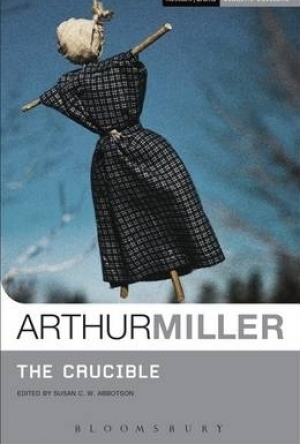
The Crucible
Arthur Miller and Susan C. W. Abbotson
Book
This Student Edition of The Crucible is perfect for students of literature and drama and offers an...
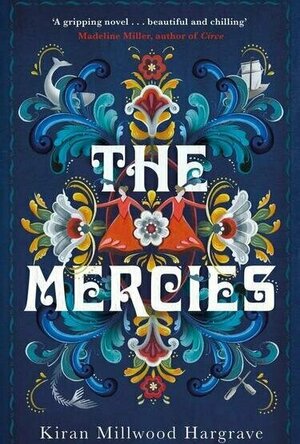
The Mercies
Book
On Christmas Eve, 1617, the sea around the remote Norwegian island of Vardø is thrown into a...
Sean Freese (4 KP) rated The Witch (2015) in Movies
Jun 25, 2020
The full title is, The Witch: A New England Folktale. Like Grimm’s fairytales, American folklore has taken revisions over the centuries to become a palatable collection of juvenile life lessons. Anyone who has read the original versions of these stories knows how brutal, horrifying, and far removed they are from our current values. As much as I would not condone reading original classic witch tales to a small child, they do contain much deeper implications and ideas than the simple “Don’t tell lies” that are gleaned from modern revisions. What’s fascinating about The Witch is how familiar the setting and story is, without a single cliché or moment of prediction to speak of. The evil that was feared in 17th Century Puritan America has been so eclipsed by the human horrors of The Salem Witch Trials, that we have forgotten what it was to fear a witch.
We know these characters only by their Christian names. William removes his family from their Colonial settlement due to an incompatibility of faith. The colony of Puritans isn’t Christian enough. With his wife, Katherine, William takes his 4 children into the wilds of the Northeast. Airs of The Crucible envelope the setting. Common pronouns are replaced with “thines” and “thous”. Dialogue is delivered as if quoted from Shakespeare or the Bible itself. In the past, this oral dynamic has always sounded ardently rehearsed. Somehow, it’s natural here. Considering William’s rigorous faith, you might expect him to be an overbearingly shrewd father. He is in fact a loving and good man of his time; often a pushover. Katherine is the more fearsome parent, with a shrill voice and gaunt pointed face. While they do live in hardship, this is a good family. Once Fall deadens the colors and greys the skies, things begin to take a disturbing turn.
Ralph Ineson and Kate Dickie play the parents without an exaggeration of the material. Remarkable still are the actors portraying their children. Harvey Scrimshaw plays William’s 10-year-old son, Caleb, as natural as can be imagined. The dramatic beats of a horror movie come with taxing climactic moments and Scrimshaw acts beyond his years. Anya Taylor-Joy plays the eldest daughter Thomasin; a doe-eyed blonde beauty who plays the most relatable character of the flock. The dynamic between Caleb and Thompsin has notes of innocent sexual tension. Their secluded life leaves a great deal of new feelings that can’t be addressed due to their customs. These feelings lead to foreign temptations that are preyed upon by the timeless evil beyond the trees.
The greatest achievement of this film is how faithful it is to its setting and story, while keeping enough behind the veil to become engrossing. The tale feels as old as any, drawing from universal fears and motivations. How it draws you in, keeping you tied to the victims and their perspective while keeping the evil at arm’s length, shows a discipline of craft that greatly compliments the material. Much like vampires, witches have been trivialized and diluted by film into something superficially attractive and entertainingly evil. As with Noseferatu, seeing a witch living a damnable existence of ugliness is much more appropriate. If they’re ever beautiful, they won’t be for long.
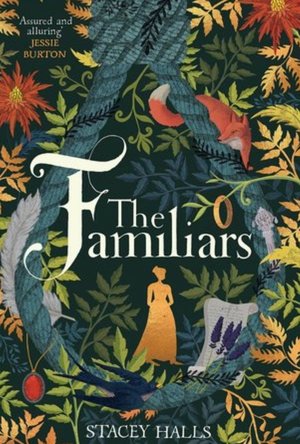
The Familiars
Book
In a time of suspicion and accusation, to be a woman is the greatest risk of all . . . Fleetwood...
Historical Fiction Witch Trials Witchcraft
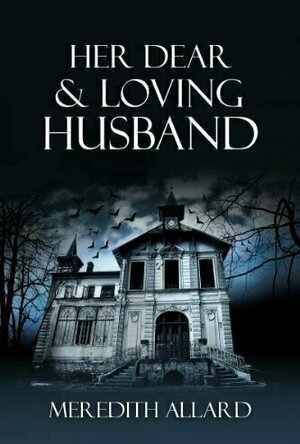
Her Dear and Loving Husband (Loving Husband, #1)
Book
How long would you wait for the one you loved? Professor James Wentworth has a paranormal secret....
Becs (244 KP) rated The Crucible in Books
Oct 2, 2019
Reading these in school and then giving them a reread five years after graduating, has shown a new light onto these novels. And has made me appreciate them more as a whole compared to when I read them in high school. If you haven’t read many literary classics, I recommend starting with something by Arthur Miller or George Orwell. Yes, they may be a bit hard to get into at first, but give it time. That’s the key when reading any book!
The Crucible by Arthur Miller
Genre: Literary Classic, Historical Fiction, Plays, Drama
Synopsis: “I believe that the reader will discover here the essential nature of one of the strangest and most awful chapters in human history,” Arthur Miller wrote of his classic play about the witch-hunts and trials in seventeenth-century Salem, Massachusetts. Based on historical people and real events, Miller’s drama is a searing portrait of a community engulfed by hysteria. In the rigid theocracy of Salem, rumors that women are practicing witchcraft galvanize the town’s most basic fears and suspicions; and when a young girl accuses Elizabeth Proctor of being a witch, self-righteous church leaders and townspeople insist that Elizabeth be brought to trial. The ruthlessness of the prosecutors and the eagerness of neighbor to testify against neighbor brilliantly illuminate the destructive power of socially sanctioned violence.
Written in 1953, The Crucible is a mirror Miller uses to reflect the anti-communist hysteria inspired by Senator Joseph McCarthy’s “witch-hunts” in the United States. Within the text itself, Miller contemplates the parallels, writing, “Political opposition… is given an inhumane overlay, which then justifies the abrogation of all normally applied customs of civilized behavior. A political policy is equated with moral right, and opposition to it with diabolical malevolence.”
WIth an introduction by Christopher Bigsby.
Audience/ Reading Level: High School +
Interests: Plays, Drama, Witches, the Salem Trials, Arthur Miller, Literary Classics.
Point of View: Third Person Omniscient
Difficulty Reading: With every literary classic, you run into the problem of the first 30% of the novel being a bore or hard to get into. The Crucible was only a bore in parts but taking the novel as a whole, it was a pretty easy read.
Promise: “I believe that the reader will discover here the essential nature of one of the strangest and most awful chapters in human history.”
Insights: The Crucible is based on true events and Arthur Miller has a way of explaining everything that was wrong with the way people lived. I.E. Woman did not have rights until the early 1920’s. This didn’t stop some countries/states to still not allow the woman to have rights. But taking The Crucible into perspective, the women that were charged with witchcraft were unable to explain themselves to the men. The men believed the accusers either because they were sleeping with them or because they were their family. Luckily, nowadays we don’t have this extreme of situations but it still does exist. The Crucible teaches all of its readers, young or old, many valuable lessons that are sometimes hard to witness. Plus, Miller correlates the events in the Crucible to the anti-communist McCarthyism of the 1950s.
Favorite Quotes: “I speak my own sins; I cannot judge another. I have no tongue for it.”
“Because it is my name! Because I cannot have another in my life! Because I lie and sign myself to lies! Because I am not worth the dust on the feet of them that hang! How may I live without my name? I have given you my soul; leave me my name!”
“You are pulling down heaven and raising up a whore”
What will you gain: A love for another literary classic and a love for Arthur Miller if you do not already love his writing. Plus, a great historical read.
Aesthetics: The witches, the trials, the way people take sides, I mean I can’t say much more without giving spoilers away. We wouldn’t want that, now would we?
“It is rare for people to be asked the question which puts them squarely in front of themselves”
